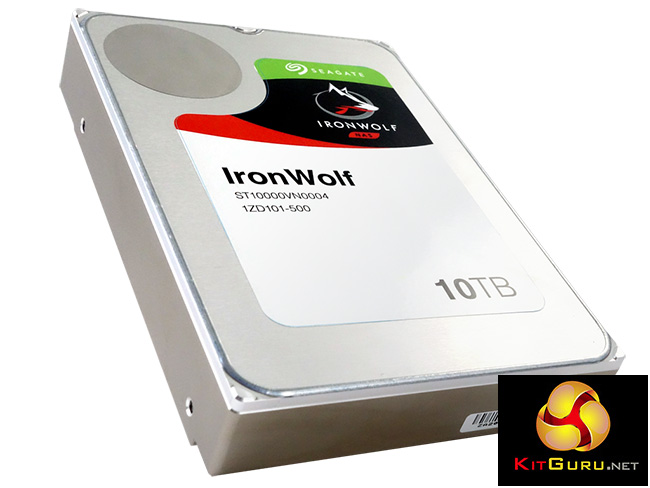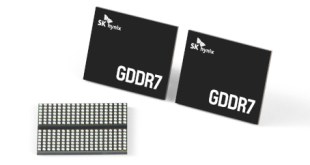The demise of the mechanical hard drive has been predicted for years now, and many hardcore enthusiasts will tell you they just use solid state drives in their system – for the operating system certainly, but even now for file storage. Unfortunately, unless you have a rather substantial income, these high capacity SSD's have exorbitant price tags that alienate a large percentage of the potential audience.
The demand for cheap storage shows no sign of slowing down as more and more content becomes available for download. Four hundred pounds is still a fair bit of cash but the 10TB IronWolf drives incorporating Helium technology are generally more expensive than standard mechanical designs.
The Seagate Ironwolf 10TB is priced at £399.99 inc vat, and by comparison the 4TB Samsung 850 EVO retails for £1,289.99 (HERE) inc vat. The Ironwolf offers two and a half times the capacity for less than a third of the price.
The 10TB IronWolf is a very quiet drive in operation even when pushed hard during benchmarking. Seagate quote power figures for the drive of 0.8w typical standby, 4.4W idle and 6.8W for average operations.
All the anti-vibration technology the 10TB IronWolf has may seem over the top for a NAS drive aimed at Home and Small Business but in NAS devices with 6 -8 bays (or more), preventing vibration damage is important as it can affect a drive's performance and ultimately the lifespan.
We found the Seagate IronWolf 10tb on sale at Ebuyer for £399.99 HERE
Discuss on our Facebook page, over HERE.
Pros
- Huge capacity.
- Anti-vibration technologies.
- by SSD standards, its cheap.
Cons
- by mechanical standards, its expensive.
Kitguru says: Contrary to popular belief the mechanical hard drive is alive and kicking. Seagate's IronWolf delivers solid performance with the latest in anti-vibration drive technology.
 KitGuru KitGuru.net – Tech News | Hardware News | Hardware Reviews | IOS | Mobile | Gaming | Graphics Cards
KitGuru KitGuru.net – Tech News | Hardware News | Hardware Reviews | IOS | Mobile | Gaming | Graphics Cards





Yet, compared to 2TB SSD, this is the cheaper alternative for 5x the storage. It’s not cheap, but it’s not too bad comperatively. I would love to see this drive for less than 200 euros. My current steam library is roughly 6TB +
You actually keep all your games of your steam library on your HDD? lol.
Yep, means, I don’t have to wait to download a game if I feel like playing it. The games I play most end up on my SSD for the time I use them then back to HDD. If something ever were to happen to steam for who knows what reason I could always crack my games.
You have a higher chance of losing your HDD than steam suddenly shutting down lol.
With a 180TB write endurance for 10 years? Seems kind of unlikely. Drives have a pretty long life expectancy specially if you use them more for storage rather than every day use.
I usually get paid in the span of 6-8 thousand dollars on monthly basis on the internet. For those of you who are prepared to finish simple computer-based task for 2-5 hrs daily from your home and make good benefit in the same time… Test this task UR1.CA/pm79t
i got 8 of these into a NAS in RAID 6, 60TB of storage. this one NAS replaced 3 older units running 2TB and 3TB drives. the space and power savings alone are worth it!
I am only afraid of one thing … it is one word, really, that I am worried about. The word is SEAGATE.
I take care of over 30 classrooms full of pc’s with consumer hdd’s. By far the highest failure rates we have ever seen are Western Digital Green drives. There are no drives on the consumer market LESS reliable than Western Dodgy greens. Backblaze’s most recent data shows this to be true with a failure rate over 10%.
But the relevant fact is that the chance of steam suddenly shutting down *and* him losing his HDD at the same time is smaller than just the chance of the steam suddenly shutting down.
I hope they keep avoiding SMR wherever possible.